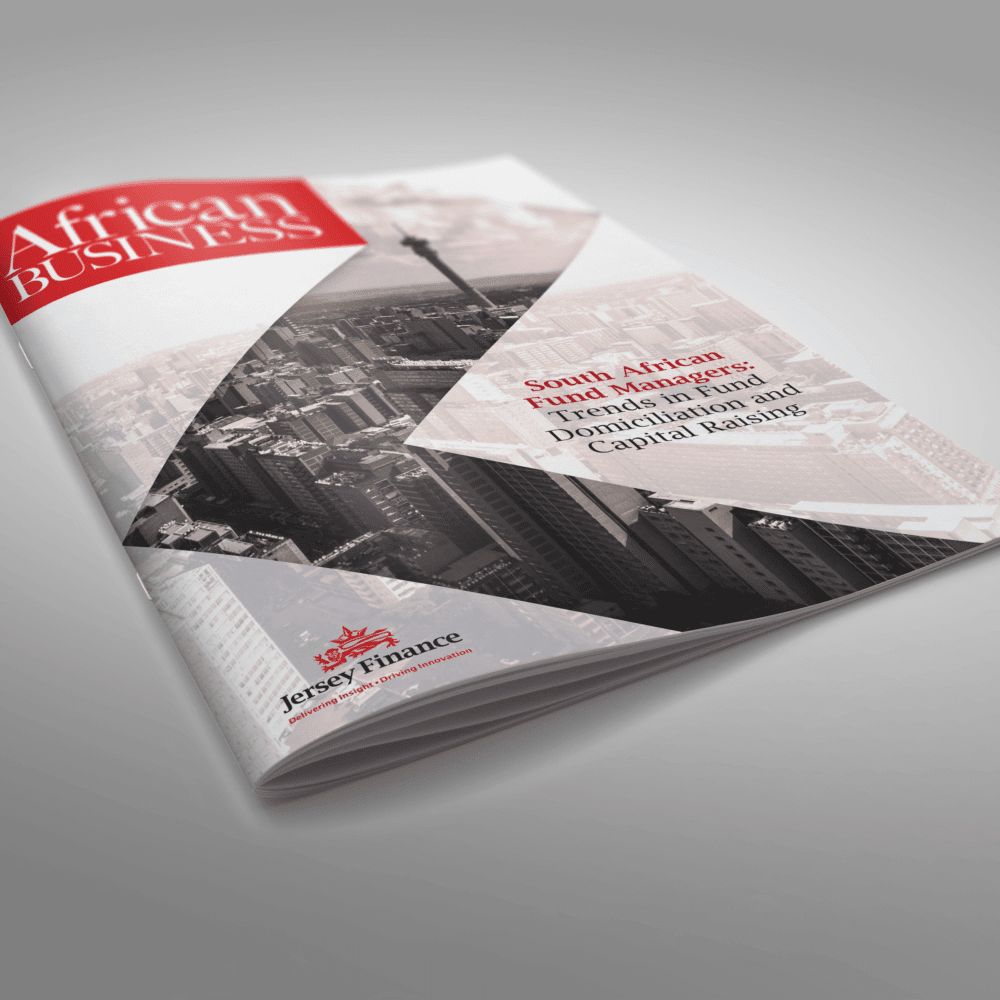We have therefore commissioned independent research from African Business Magazine, surveying more than 60 LPs and GPs operating in jurisdictions worldwide and with a connection to South African managers. Entitled ‘South African Fund Managers: Trends in Fund Domiciliation and Capital Raising’, the report explores the emerging trends for fund domiciliation and capital raising, particularly as a route for private equity impact investing into the wider African continent.
This research follows on from our 2015 report ‘Jersey’s Value to Africa’ where the opportunities to facilitate capital flows into the continent were explored at a macro level. In this report we aim to go more granular and unearth pragmatic market findings for funds and investors to make these aspirations a reality.
Following the launch of this report, African Business magazine also published a Partner Insight, where Dr Desné Masie outlines the opportunities highlighted in her initial research.
Downloads
Video: Report Summary
Key Findings
Our survey looked at the drivers of domiciliation and capital raising from many dimensions…
- First, we find that the choice of jurisdiction ultimately rests with LPs. Among LPs, and the DFIs in particular – situated in the US, UK and EU, 100% of capital is invested internationally, and given the substantial war chest of such investors, their portfolios are not limited to Africa. They have no particular preference to using a particular jurisdiction, provided the level of governance and regulation is sound with no major red flags.
- For the typical SA private equity fund investing into Africa, many LPs use Mauritius for that geographical context, and this has been the status quo for many years. This will, however, be complicated by Mauritius still being on the EU blacklist at the time of writing.
- Among GPs, our sample had around 60% of their capital committed internationally, with the managers all having a connection to South Africa, but their funds or special purpose vehicles domiciled across onshore and offshore jurisdictions – the majority in Mauritius, but also around 30%-40% in Caymans and Sub-Saharan Africa, and a smaller subset of around 10-15% of funds domiciled in the EU (mainly the UK, Dublin, Luxembourg and Jersey).
- Ultimate factors leading to the choice of jurisdiction are also LP-led and this is determined by some key factors as set out on pages 10-11 of the report. The drivers of domiciliation were namely: familiarity, cost, tax neutrality, regulation and governance, and the quality of local service providers and non-executive fund directors.
- We find that, of these, top of mind for LPs is the quality of the legal and regulatory framework, given the industry trend focused on transparency through anti-money laundering (AML), know-your-customer (KYC) and substance provisions resulting in increased regulatory reporting and costs only further exponentialized by the recent push for environmental, social and governance factors (ESG) to be incorporated into investment decision-making. Political and fiscal stability is also an increasing factor, given the aforementioned geopolitical turmoil.
- Managers overall expect to use offshore and EU jurisdictions more given the increased interest in impact investing driven by ESG-led investing, and crucially, a better understanding of the risks and opportunities of doing business in Africa.
- For those South African managers who are already raising capital in the EU the majority are using private placement, as the full EU Alternative Investment Fund Managers Directive (AIFMD) provisions are, in their opinion, inconsistently applied and incoherent for non-EU fund managers.
- Those who have tried and are raising would like to see AIFMD II become less draconian and smoother for non-EU managers, or some alternative solutions. In addition to these worries, low and negative interest rates across the EU are also a major frustration, given the offset of high yields in Africa.
- As regards to Brexit and Covid-19, these twin peaks of market volatility are also concerns. Brexit is a concern for those with exposure to the UK, while the pandemic is becoming a hindrance for capital raising and fund exits. Apart from these frictions, managers and investors remain wildly optimistic about the African opportunity.
Please log in to view this content OR create an account/create a login
You must login to the Jersey Finance website to access this area. If you do not have a login, please create one.
Help
To create a login, click here
Or please press the back button on your browser to return to the last page to try again or return to the homepage.
To reset your password please click here.

